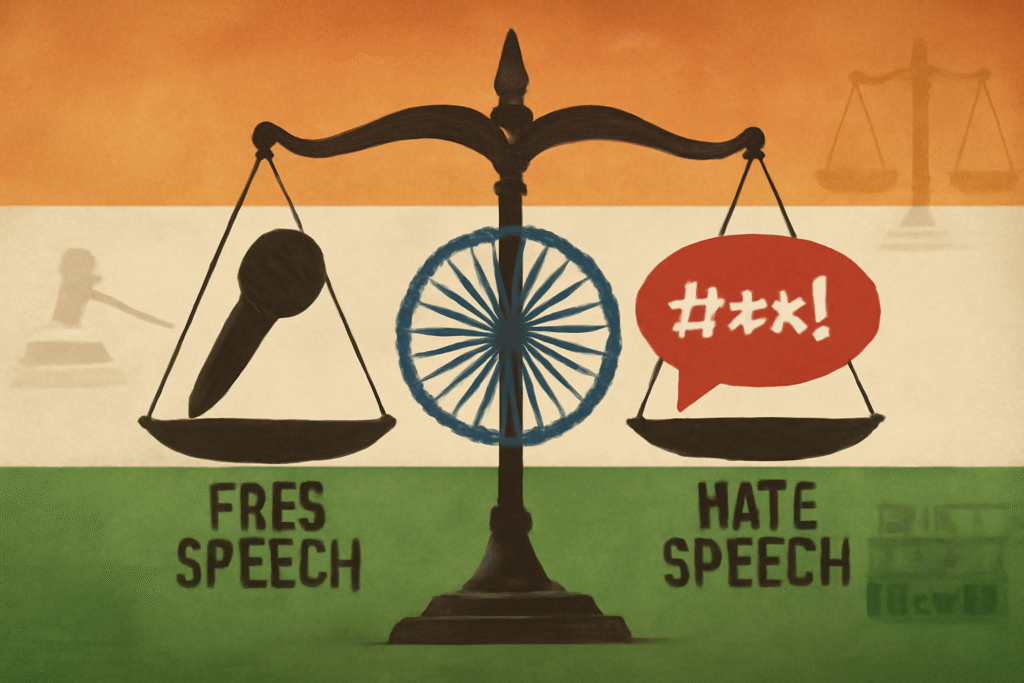Published On: 22nd November, 2024
Authored by: Bikram Kumar
BMT Law College
Introduction
Rape is a grave violation of personal dignity and autonomy, involving forceful sexual intercourse without consent. Traditionally, this act was seen as driven by uncontrolled sexual desire. However, modern understanding identifies it as a tool of dominance and control over the victim. Legal systems across the world have expanded the definition of rape to include various forms of sexual assault, not limited to intercourse.
In India, Section 375 of the Indian Penal Code (IPC) defines rape as non-consensual sexual intercourse by a man with a woman. However, an exception exists for marital relationships, exempting husbands from prosecution for rape against their wives. This exception reflects a significant gap in the legal framework, depriving married women of protections that are otherwise guaranteed under the law.
Meaning of Marital Rape
Marital rape, or spousal rape, refers to non-consensual sexual intercourse between married partners. The defining factor of this crime is the absence of consent, regardless of whether physical violence is involved. It is recognized globally as a form of domestic violence and sexual abuse.
Historically, sexual relations within marriage were considered a right of the husband. Over time, many nations have abandoned this outdated notion, classifying marital rape as a criminal offense. International conventions and human rights advocacy underscores the need to treat all forms of sexual violence as criminal acts, irrespective of marital status. Unfortunately, India has yet to adopt this progressive approach.
Status of Marital Rape in India
Legal Provisions
India is among the 36 countries where marital rape is not criminalized. Exception 2 of Section 375, IPC, explicitly states:
“Non-consensual sexual intercourse by a man with his wife, if she is over 15 years of age, does not amount to rape.”
This provision assumes that marriage establishes perpetual consent, effectively denying women the right to refuse sexual advances from their husbands.
Statistical Insights
The National Family Health Survey (NFHS-4, 2015-16) sheds light on the prevalence of marital rape in India:
- 83% of married women aged 15-49 attributed sexual violence to their husbands.
- 4% were forced into intercourse, 2.1% into other sexual acts, and 3% faced threats when they refused.
A 2017 report by the International Center for Research on Women and the United Nations Population Fund revealed that 17% of married women reported experiencing sexual violence from their husbands. Additionally, 31% of men admitted to committing such acts, highlighting the pervasive nature of this issue.
Judicial Perspective
Indian courts have grappled with the concept of marital rape, often deferring to cultural norms rather than constitutional principles:
-
Harvinder Kaur vs. Harmander Singh (1984): The Delhi High Court ruled that judicial intervention in domestic matters could disrupt the sanctity of marriage. It further stated that constitutional rights under Articles 14 and 21 do not extend to the private domain of marital relationships.
-
State of Maharashtra vs. Madhukar Narayan Mardikar (1991): The Supreme Court emphasized that every woman, married or unmarried, has a fundamental right to privacy and bodily autonomy.
-
Independent Thought vs. Union of India (2017): The Supreme Court held that the marital rape exception for girls aged 15-18 violated constitutional rights and child protection laws. However, the judgment did not extend to adult women.
-
State vs. Vikash (2014): A Delhi fast-track court ruled that forced intercourse within marriage could not be considered rape due to the marital exception under Section 375.
-
Justice Verma Committee (2012): In the aftermath of the Nirbhaya case, this committee recommended the criminalization of marital rape. However, the government ignored these recommendations.
Why Marital Rape Should Be Criminalized in India
1. Breach of Article 14: Right to Equality
Article 14 of the Indian Constitution guarantees equality before the law. However, Exception 2 of Section 375 contradicts this principle by creating a distinction based on marital status. While unmarried women are protected from rape, married women are denied the same legal recourse for identical violations.
Historically, the IPC regarded married women as extensions of their husbands, lacking independent legal identities. While modern laws recognize women as separate legal entities, this exception perpetuates outdated notions of male dominance.
The Supreme Court, in cases like Budhan Choudhary vs. State of Bihar (1955) and State of West Bengal vs. Anwar Ali Sarkar (1952), has ruled that legal classifications must have a reasonable nexus to the statute’s objectives. Exception 2 fails this test by arbitrarily excluding married women from protection against rape.
2. Violation of Article 21: Right to Life and Personal Liberty
Article 21 guarantees the right to life, which includes dignity, bodily autonomy, and mental well-being. Marital rape fundamentally violates these rights, subjecting women to physical and psychological harm.
The Supreme Court has consistently expanded the scope of Article 21 to protect individual dignity. The marital rape exception, however, undermines this constitutional mandate, leaving married women vulnerable to abuse.
3. International Commitments
India is a signatory to international conventions like CEDAW (Convention on the Elimination of All Forms of Discrimination Against Women). These agreements obligate member states to ensure gender equality and protect women from all forms of violence. Criminalizing marital rape would align India’s legal framework with its global commitments.
Conclusion
Marital rape is a heinous violation of human rights that undermines the constitutional principles of equality and dignity. Exception 2 of Section 375, IPC, perpetuates gender discrimination, denying married women the protection they deserve.
It is imperative for the Indian legislature to recognize marital rape as a crime, ensuring justice and equality for all women, irrespective of their marital status. Addressing this legal lacuna is not only a step toward gender justice but also a fulfillment of India’s constitutional and international obligations.
Reference(s):
¹ Marital Rape in India: 36 countries where marital rape is not a crime, India Today, Mar. 12, 2016.
² Marital Rape in India, Keerthi Krishna, Krati Purwar, Investigative Project Print, Asian College of Journalism
³ Harminder Kaur vs. Harmander Singh AIR 1984 Delhi 66, ILR 1984 Delhi 546, 1984 RLR 187
⁴ State of Maharashtra & Anr. vs. Madhukar Narayan Mardikar AIR 1991 SC 207, (1991) 1 SCC 57
⁵ Shri Bodhisattwa Gautam vs Ms. Subhra Chakraborty, 1996 AIR 922, 1996 SCC (1) 490
⁶ Marital Rape in India, Keerthi Krishna, Krati Purwar, Investigative Project Print, Asian College of Journalism
⁷ Independent Thought vs UOI, (2017) 10 SCC 800: AIR 2017 SC 4904
⁸ Bhupinder Singh v. Union Territory of Chandigarh, (2008) SCC 531
⁹ Nimesh Bhai Bharat Bhai Desai vs. State of Gujarat, 2018, Guj 732
¹⁰ Shukla, V.N., Constitution of India, 201, (M.P.Singh Ed., Lucknow: Eastern Book Company, 13th Ed., 2017)
¹¹ To Have and to Hold: The Marital Rape Exemption and the Fourteenth Amendment, 99(6) Harv. L. Rev. 1255, 1256 (1986).
¹² Protection of Women from Domestic Violence Act, 2005, No. 43, Acts of Parliament, 2005 (India); Sexual Harassment of Women at Workplace (Prevention, Prohibition and Redressal) Act, 2013, No. 14, Acts of Parliament, 2013 (India).
¹³ Budhan v. State of Bihar, AIR (1955) SC 191
¹⁴ State of West Bengal vs. Anwar Ali Sarkar, AIR (1952) SC 75
¹⁵ Shukla, V.N., Constitution of India, 201, (M.P.Singh Ed., Lucknow: Eastern Book Company, 13th Ed., 2017)




